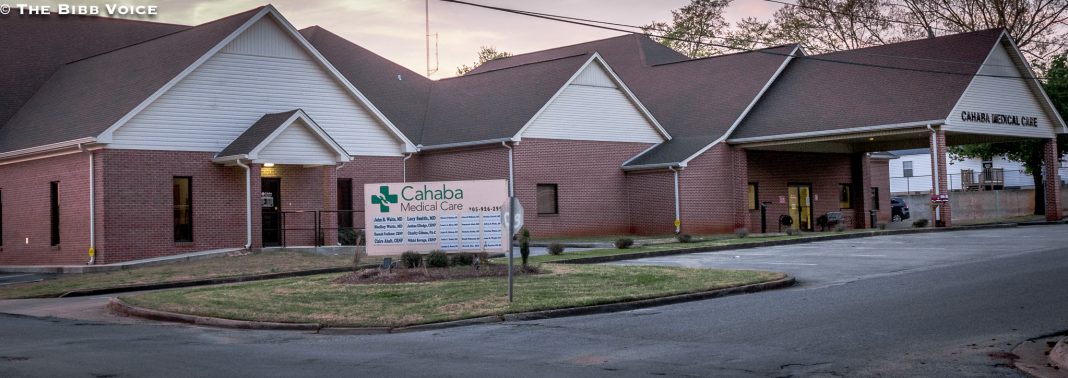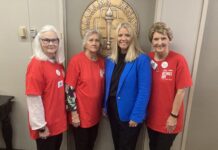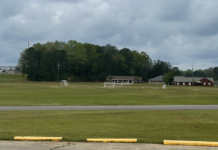Even with the curve reducing thanks to social distancing and shelter-in-place orders across the nation, the coronavirus pandemic continues to spread. The death toll rises as the economic impact worsens. Some businesses may never operate the same way again or be viable post-pandemic. One industry that most would not think would be negatively affected by a health crisis is healthcare. It would seem a pandemic would feed the fire of the giant healthcare industry in the United States. But, it may in fact be killing it.
On March 13, Governor Ivey issued the first step of an Executive Order aimed at helping Alabama residents during the COVID-19 crisis. Part one of that order took steps to cut red tape in the healthcare industry, allowing among other things for physicians to supervise an unlimited number of Certified Registered Nurse Practitioners (CRNP’s) who would also have increased privileges concerning what they are allowed to prescribe (as long as their DEA license allows it). The Executive Order also made it easier for hospitals to increase capacity to accommodate an influx of patients with COVID-19. The directives under the order are temporary, and will go away when the State of Emergency is lifted. What effect did these directives have on healthcare in Alabama?
For citizens, there was very little realized effect. For the large hospitals like UAB that are soaking up most of the now 861 hospitalizations from coronavirus in Alabama, the Governor’s order made it easier for them to provide proper care for the influx of those patients. However, what most outside of the healthcare sector have not noticed is that the overall number of patients going to the doctor has plummeted in the past two months.
“We haven’t seen an influx, but rather a decline in patient load,” Karlee Johnson said. Johnson is a CRNP with BMC at Home in Centreville. I spoke with her recently about the novel corona virus crisis and how it has effected daily interactions with patients. How the crisis is affecting her profession is an entirely different set of questions, however.
She also works part-time at Druid City Hospital’s Emergency Room, and as a matter of observation says that volume of patients at all facilities that she knows of has dropped off sharply. “People are afraid of being exposed [to coronavirus], so they aren’t going to the doctor or ER for every little thing like they normally would,” Johnson said. As a result, she said the number of shifts and hours available to nurses and other hospital and clinic staff is dropping due to a decrease in revenue. This observation is backed up by Dr. John Waits of Cahaba Medical Care.
In a recent article by the Washington Times, Dr. Waits said his clinic has seen a reduction in revenues of 30-40% through the pandemic crisis. His reason is simple: a reduction in the number of patients coming in. As an example, Waits said one recent morning that he normally would have 16 patients scheduled, there were only four, and two of them didn’t show up.
When the patients don’t show up, they can’t be billed, nor can their insurance. It makes it difficult to pay the bills – including salaries – when there is not enough money coming in. It does not help that insurance companies are thus far being reluctant to pay for tele-medicine consulting sessions. While the Governor’s reduction of regulations and limitations on the healthcare industry were intended to help citizens, the Executive Order does nothing to help providers continue to stay in business.
Hospitals are allowed to house more patients, but there are fewer overall patients now. Physicians are allowed to supervise an unlimited number of CRNP’s, Midwives, and RN’s now, but as Karlee Johnson pointed out: “Who’s going to pay for them?”
In rural facilities such as Bibb Medical Center, a lifting of the 4 CRNP’s per physician limit does no good for anyone because they cannot afford to pay for more CRNP’s. In fact, with the drop in patient volume, it seems likely they cannot afford to pay for the ones they currently have. With many rural hospitals already closing prior to the pandemic crisis, the future of rural healthcare may be on shaky ground. There may be a real possibility that practices such as Cahaba Medical Care would have to reduce staff, and according the the Washington Times article, some practices (such as Community Urgent Care in Fultondale) may already be on the brink of closing down completely. In fact, the healthcare industry as a whole may see a drastic restructuring of operations and business models before this is all done.
The Nurse Practitioners Alliance of Alabama issued a press release on April 23, urging the need for a permanence of the loosened regulation regarding the number of CRNP’s a physician is allowed to supervise. According to their letter, more CRNP’s means having more access and availability of high quality, more affordable care. This may well be the case, but with the current model of hospital and doctor’s office operational structure, would it make a difference in places like Bibb County?
We can hope that Bibb County isn’t added to the list of rural areas that lost their small hospitals. We can hope that the community fixture of Cahaba Medical Care also weathers the business storm of the COVID pandemic. We can all hope, but unless something is done to restructure the provider model through ground-up out-of-the-box thinking, jobs and access to local healthcare could potentially be lost. Healthcare in the United States may never be the same after COVID-19.
















